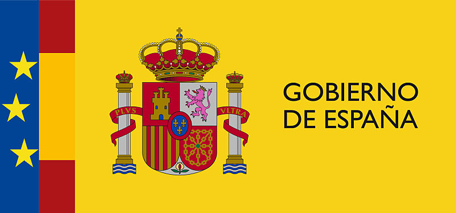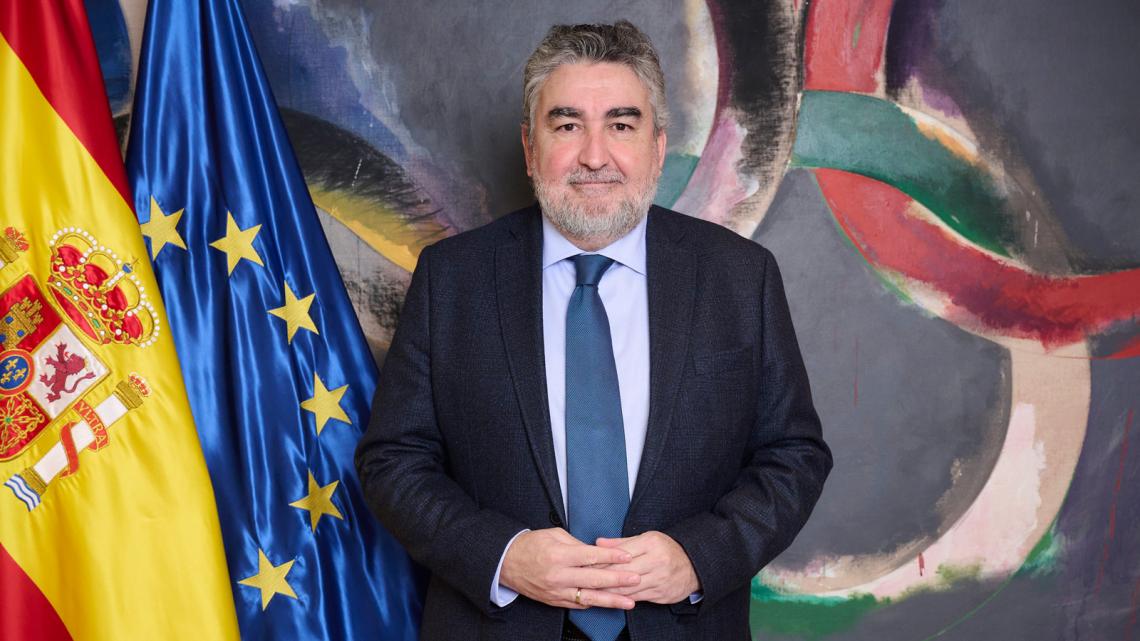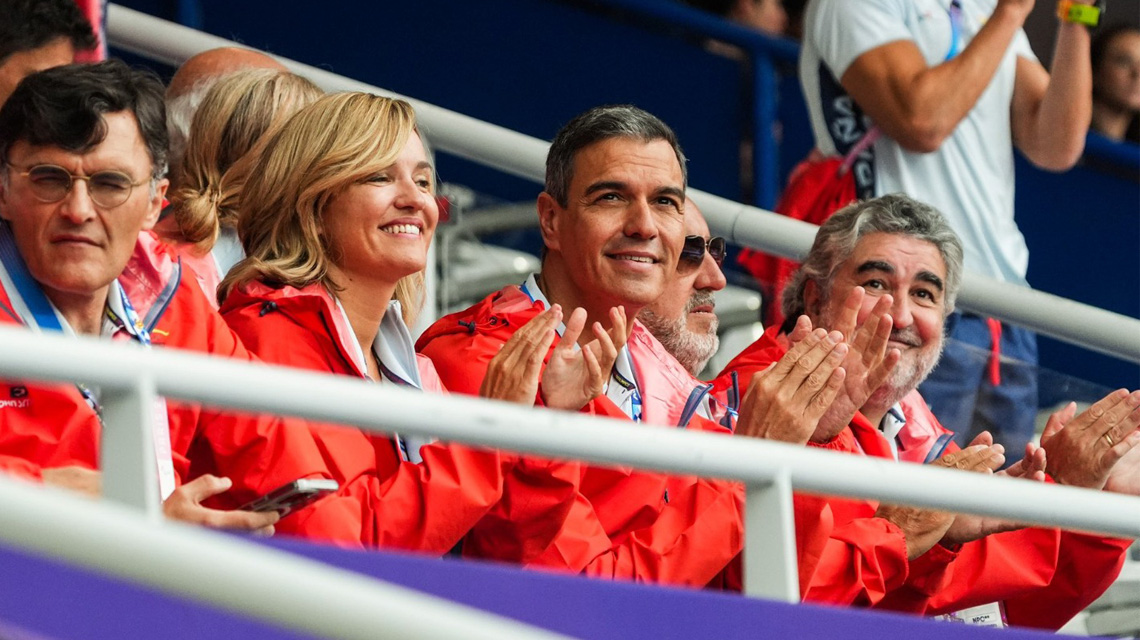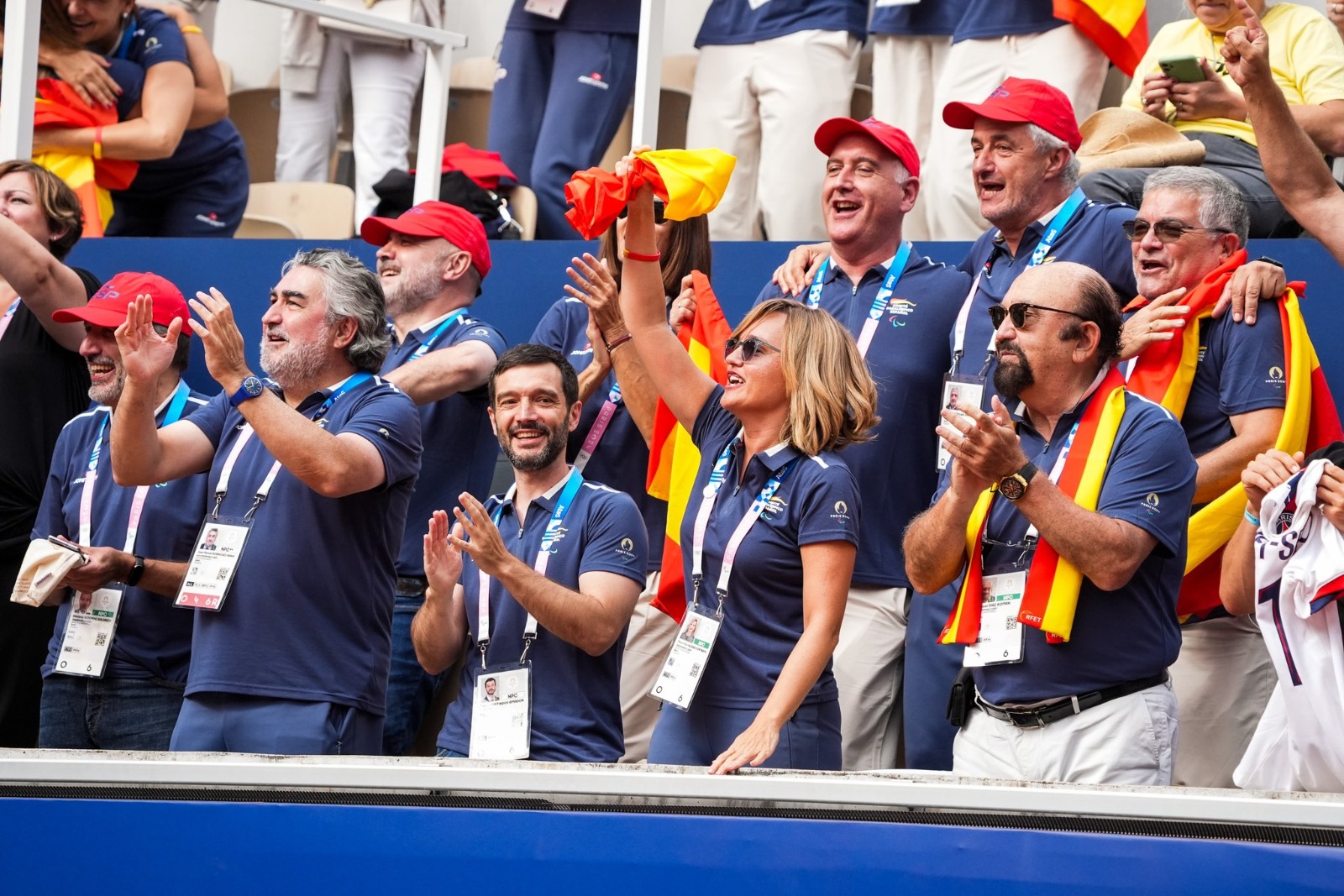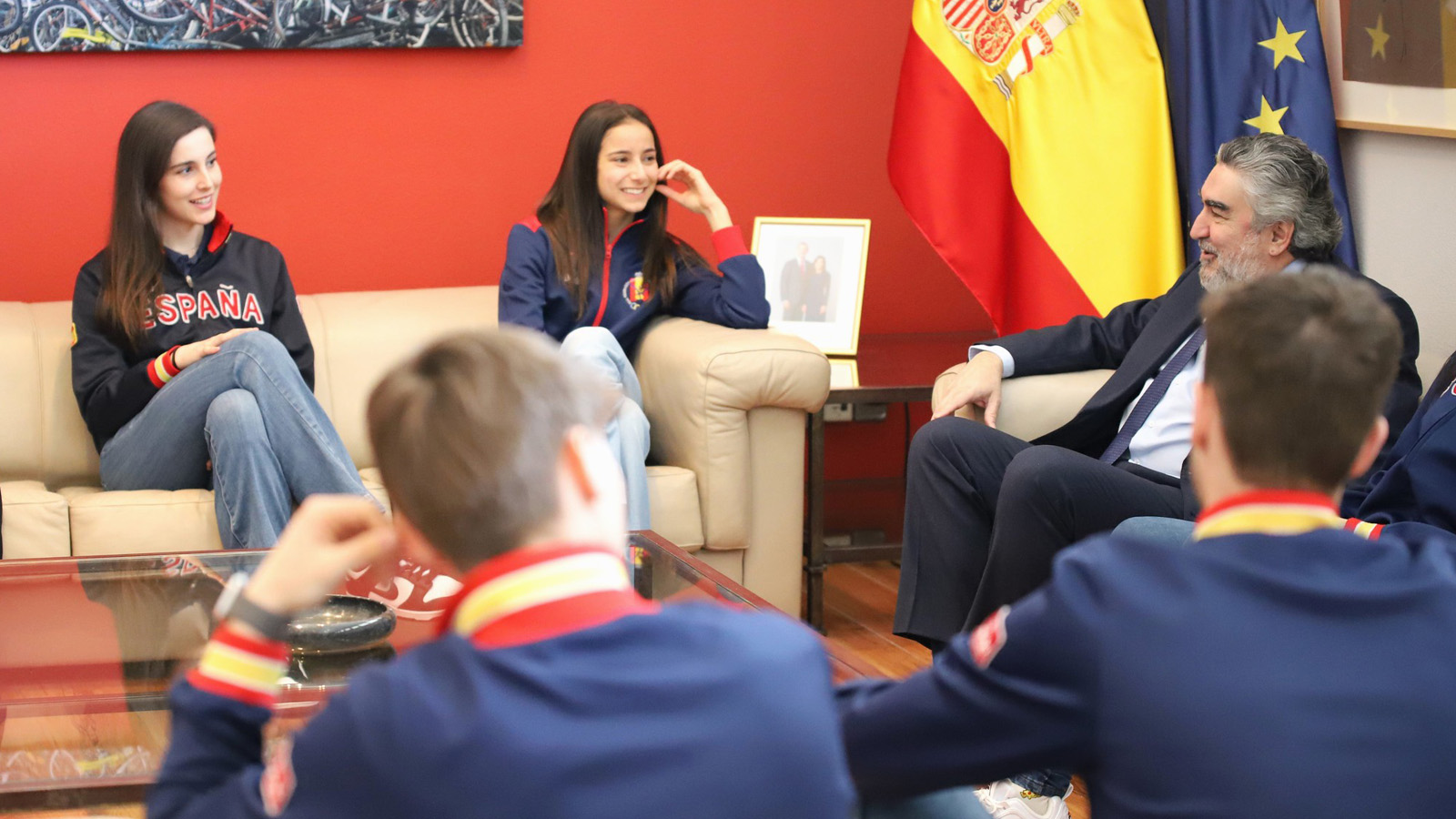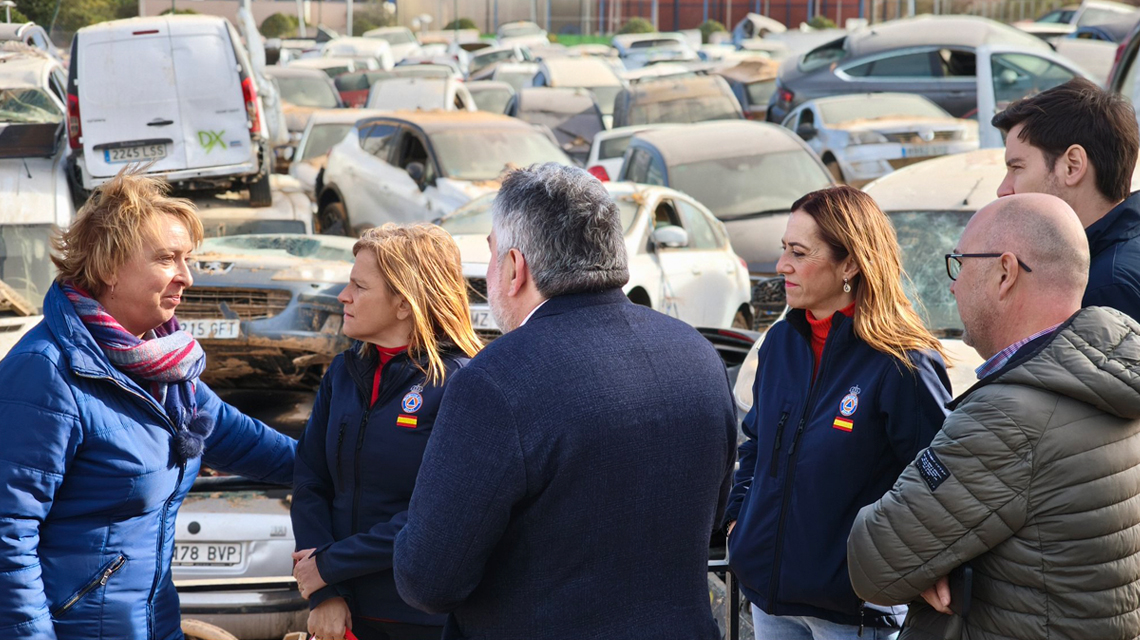Rodríguez Uribes: “Thanks to the collective effort and the government of Spain, Spanish sport lives its best from Barcelona’92”
-
After a six-year period of unprecedented investment in sport, the CSD looks to the future with the commitment to complete the transformation of the sector.
Madrid, 31 December 2024.- The Higher Council of Sports (CSD), a body attached to the Ministry of Education, Vocational Training and Sports, closes the year 2024 with a balance marked by the commitment to sports excellence, sustainability, innovation, equal opportunities and rights. These are the main axes of CSD action since 2018, when the government decided to boost Spanish sport.
This time, in fact, is marked by unprecedented economic investment. The CSD has counted in the period 2018-2024 with the highest budget in its history - EUR 1.8 billion, 63% more than in the previous six-year period - and, as Pedro Sánchez has announced, in the next six years resources will rise above EUR 2 billion.
“Not only does the economic effort show that the Government of Spain believes in the transformative power of sport. Also the public policies that we are deploying to consolidate sport as a right of all citizens and as a backbone of society. These have been two of the pillars that have guided our action in the year that ends today,” stressed CSD President José Manuel Rodríguez Uribes.
With it at the head of the body, the CSD has promoted over 2024 regulatory reforms, strengthened support for high-level sport, promoted sustainable sports tourism, contributed to the improvement of sports facilities throughout the territory and intensified the international projection of Spain, among other initiatives.
One of the last milestones has been the adoption by the Council of Ministers of the “National Strategy for the Promotion of Sport against Sedentarism and Physical Inactivity”, to which the development during the period 2025-2030 the CSD will earmark EUR 87 million to consolidate sport as a right of all citizens. The purpose is that being physically active is the norm in Spain and not extraordinary behavior. To this end, the Government will provide the necessary tools and means to ensure that the entire Spanish population has better access to the practice of quality and safe physical and sports activity.
To this end, the firm commitment to the improvement of sports facilities, intensified in 2024 through different lines of action, is already contributing.
“From the CSD, we have made a strong commitment to modernise sports facilities throughout the territory, aware that sport is a driver of social cohesion, economic development, territorial backbone and promotion of healthy habits. Our commitment includes both the Centers for High Performance and Sports Technology and those public and private owned facilities that contribute to the development of the base sport,” explained Rodríguez Uribes.
The High Performance Centers of Madrid, León and Sierra Nevada, all owned by the CSD, are immersed in the largest modernization process in their history. The tender amount for these works is close to EUR 27 million.
For its part, the Network of Technology Centers existing in Spain is benefiting from the territorial distribution of 75 million euros within the Energy 2.0 Plan. Thanks to this project, the CSD is supporting the renovation of at least 40 sites, where a reduction in primary energy demand of at least 30 per cent will be achieved.
In addition, the CSD has granted aid amounting to EUR 27,5 million to entities holding sports facilities for modernisation works to host international sports events. Also from the European funds of the Recovery, Transformation and Resilience Plan, support amounting to EUR 34.9 million has been granted to public entities with infrastructure for the promotion of sustainable sports tourism.
“We believe that, as a whole, these initiatives favour high-level athletes and citizens by promoting sport in optimal conditions and strengthening the positive impact of sport on society. Along these lines, in 2025 we will continue to transform sport so that it is a fundamental pillar of our country’s development. We must ensure that Spanish athletes have cutting-edge infrastructures that not only boost their performance, but also consolidate Spain as an international benchmark in the organisation of top-level sports competitions,” added Rodríguez Uribes.
The suitability of our country to host major events has again been demonstrated this year during the celebration of the Copa del América de vela, La Vuelta ciclista a España, the Grand MotoGP and Formula 1 Awards, the FIA MotorSport Games, the Finals of the Davis Basketball Cup and the Billie Jean King Cup, the Finals of the Olympic Series.
In addition, in this 2024 some candidacies have been successful, the most outstanding being that of the World Cup that Spain will organize in 2030 with Morocco and Portugal. “It will be the best World Cup ever held in sports and organisational terms,” said the CSD president, who also pointed out that “this event will contribute to social cohesion, unity, the development of the sport industry and collective pride.”
Team Spain, the parent project for the coming years
José Manuel Rodríguez Uribes was especially proud of the performance of Spanish athletes in the Paris Games. Both the Olympic delegation and the parallel delegation improved their performance compared to Tokyo 2020 by taking into account the number of participants and medalists, which in both cases was significantly higher.
“In part, this was thanks to the launch of Team España, a new CSD training program, which between 2022 and 2024 has been equipped with 50 million euros and that has allowed the individual needs of each athlete to be met. We're going to turn this program into the CSD parent project for the next few years, including a new area of work. The detection of talent will ensure a successful future for Spanish sport,” said Rodríguez Uribes.
The president of the CSD has also conveyed his thanks “to all the athletes who this year have fired their sports career”, as is the case of tennis players Rafael Nadal and Garbiñe Muguruza, soccer players Jesús Navas, Virginia Torrecilla and Javier Iniesta, basketball players Jessica Rodríguez and Rudy Gómez, the triathlete
“Spanish sport is at its best thanks to a collective effort, involving families, clubs, federations and the public and private sectors, but it is undeniable that everyone drinks the individual desire of each athlete and each coach to overcome and place not only our flag but also the values that identify us as a country at the top,” said Rodríguez Uribes.
Spain has placed itself as an international reference in the recognition of athletes with disabilities by equating for the first time the prizes received by medalists at the Olympic and Paralympic Games. “It’s a fair measure,” said the CSD president, “that corrects historical inequality.” “On the same merits, same recognition. This government is clear about it,” he said.
Equality policies in sport
To redouble its commitment to a more just and equitable society, the CSD has implemented new measures that are enabling Spanish sport to consolidate equality as a fundamental pillar.
The CSD has signed a convention with the Government Delegation against Gender Violence to make sport a means of social awareness and a key element in the recovery and treatment of victims. In addition, the agency has updated the protocol of action against violence in the High Performance Centers, dating back to 2020 and which will be publicly presented in the first quarter of 2025, to ensure prevention, detection and action in case of possible cases of violence, harassment and abuse, extending it to any type of violence, including sexual, psychological, physical abuse, negligence and abuse of authority, as well as grooming or bullying.
On the other hand, the CSD has approved the structure and deadline for the submission of the annual reports on equality between women and men of the Spanish sports federations and professional leagues, as well as their plans for conciliation and co-responsibility, while at the same time consolidating the aid to women athletes and the professionalization of women's competitions, with subsidies to football and basketball leagues and La Vuelta ciclista, among others.
“De cara a 2025, estas políticas seguirán siendo prioritarias para el CSD. We must continue to make progress on gender equality and the professionalisation of women's sport. The CSD will reaffirm its commitment to a sport that reflects the values of equality and diversity at all levels,” said the Secretary of State for Sport.
As regards combating hate speech in sport, the close collaboration between the CSD and the Council of Europe to develop the future Strategy and Action Plan 2024-2026 should be highlighted. Spain will also chair the European Commission’s Working Group on Combating Hate Speech in Sport.
In recent months, the CSD has also made significant progress in the regulatory framework review process, which started with the adoption in December 2022 of the new Sport Act. The majority support of the parliamentary groups made it possible to update the text that had been in force since 1990.
The CSD has initiated the processing of the Royal Decrees of Compulsory Sports Insurance, on the Punitive and Disciplinary Regime and on Sports Entities, whose approval is foreseen in 2025 together with the Royal Decree that will regulate for the first time the presence in quiniela of matches of women's competitions.
Furthermore, the new Code of Good Government, which must be applied by sports federations and professional leagues because they are public-interest entities, is already a reality. The document is inspired by the highest standards of transparency and good governance and promotes exemplary, prudent investment and expenditure, equal treatment and participation, good faith in the use of legal instruments and regulatory compliance.
Mention should also be made of the constitution within the Committee on Education, Vocational Training and Sports of the Congress of Members of the Subcommittee on the Statute of the Athlete. This will address issues relating to the rights and duties of athletes, their employment and tax regulations, their incorporation into employment policies or the protection of their health.
Another of the objectives of the CSD has been the strengthening of the High Level Athlete Care Program (PROAD), in which annually it invests one million euros for monitoring in the dual career. Since 2009, this program has facilitated the direct employment of more than 1,600 athletes.
The PROAD also offers comprehensive care. In fact, it has been a support tool for athletes of the High Performance Centers of Madrid, León and Sierra Nevada affected by DANA.
Aid granted by DANA
In the face of this tragedy, the Government of Spain has so far deployed two lines of aid for the rehabilitation of affected sports facilities, depending on their ownership.
On the one hand, according to the Royal Decree-Law 6/2024, the Government of Spain will contribute through aid to local entities to the repair, restitution or reconstruction of infrastructure, equipment or facilities and services owned by municipal, provincial or insular authorities.
In addition, through a grant of up to EUR 2 million from the CSD budget, it will assist private sports entities listed in the registers at state or regional level. Mainly, clubs and territorial federations that own infrastructures, equipment or sports facilities located in one of the 78 municipalities included in the annex to Royal Decree-Law 6/2024. The latter aid may reach a maximum of EUR 100,000 per sport entity and shall be intended to cover the costs of the repair, reconstruction or restitution works to be carried out between 28 October 2024 and 31 December 2025 as a result of the damage caused by DANA.
“Sport will be at the centre of the process of recovering this tragedy, for the obvious benefits to the physical and mental health of the people affected. Sport and physical activity will be two allies of boys and girls on their return to normal,” said Rodríguez Uribes.
“The Government will continue to bet on the transformative power of sport”
All of the above measures underline the interest of the Spanish Government in continuing to promote sport for its transformative potential. “The road of this six-year period leaves us with a clear roadmap to continue to focus on sport excellence, sustainability, innovation, equal opportunities and rights in the field of sport,” said the CSD president.
In the coming months, the agency will influence the international projection of our country through sport, promote digitalization projects that will facilitate access to cutting-edge technologies for training and recuperation of athletes, as well as boost the ecological transition in sports infrastructures. All this, within the framework of a strategic plan with which the CSD will reaffirm its commitment to consolidate sport as a right of all citizens and a backbone of Spanish society. “Because, ultimately, sport is a right, it is an industry that creates jobs and wealth and a set of values that make us better,” concluded Rodríguez Uribes.
